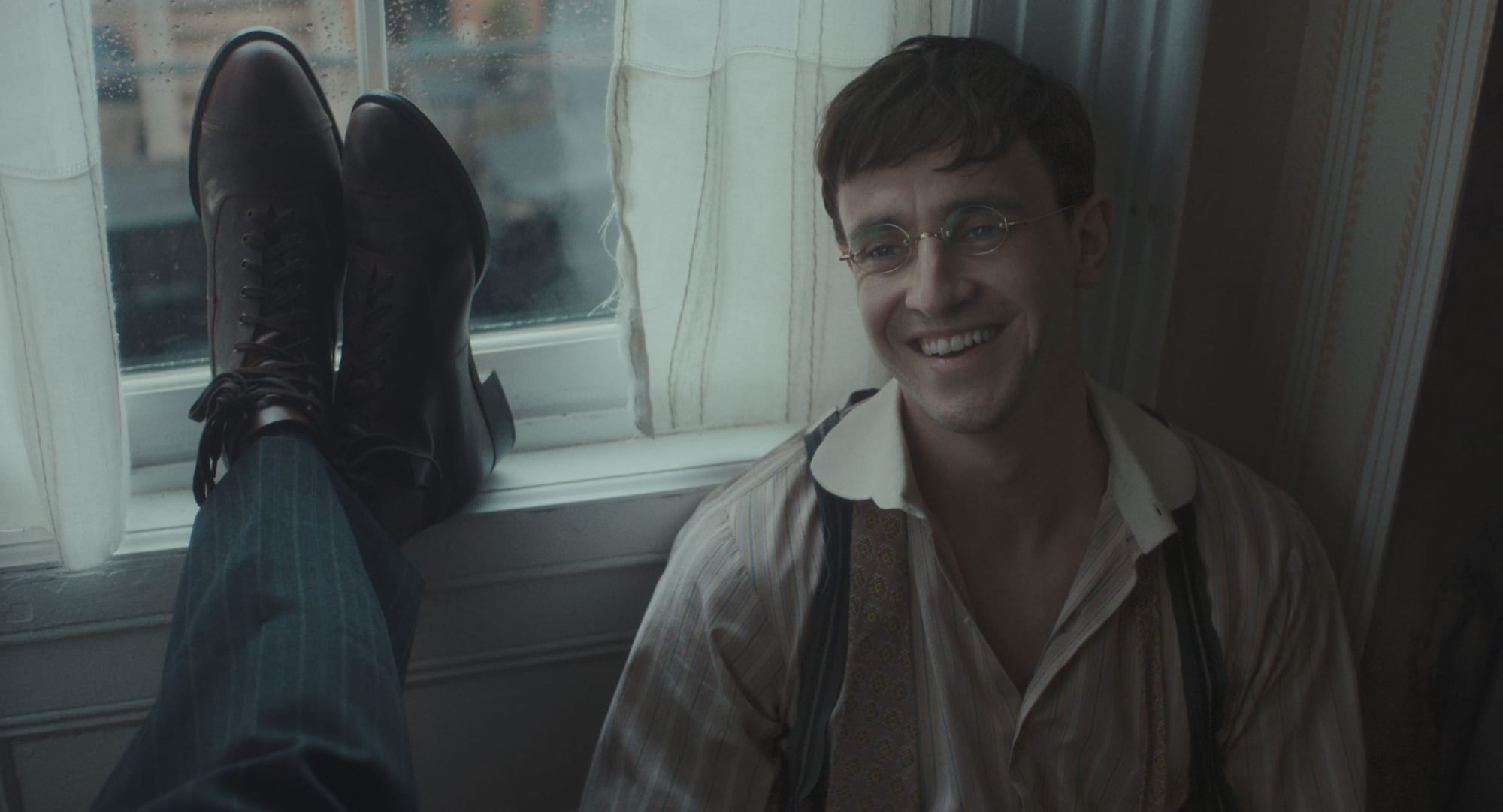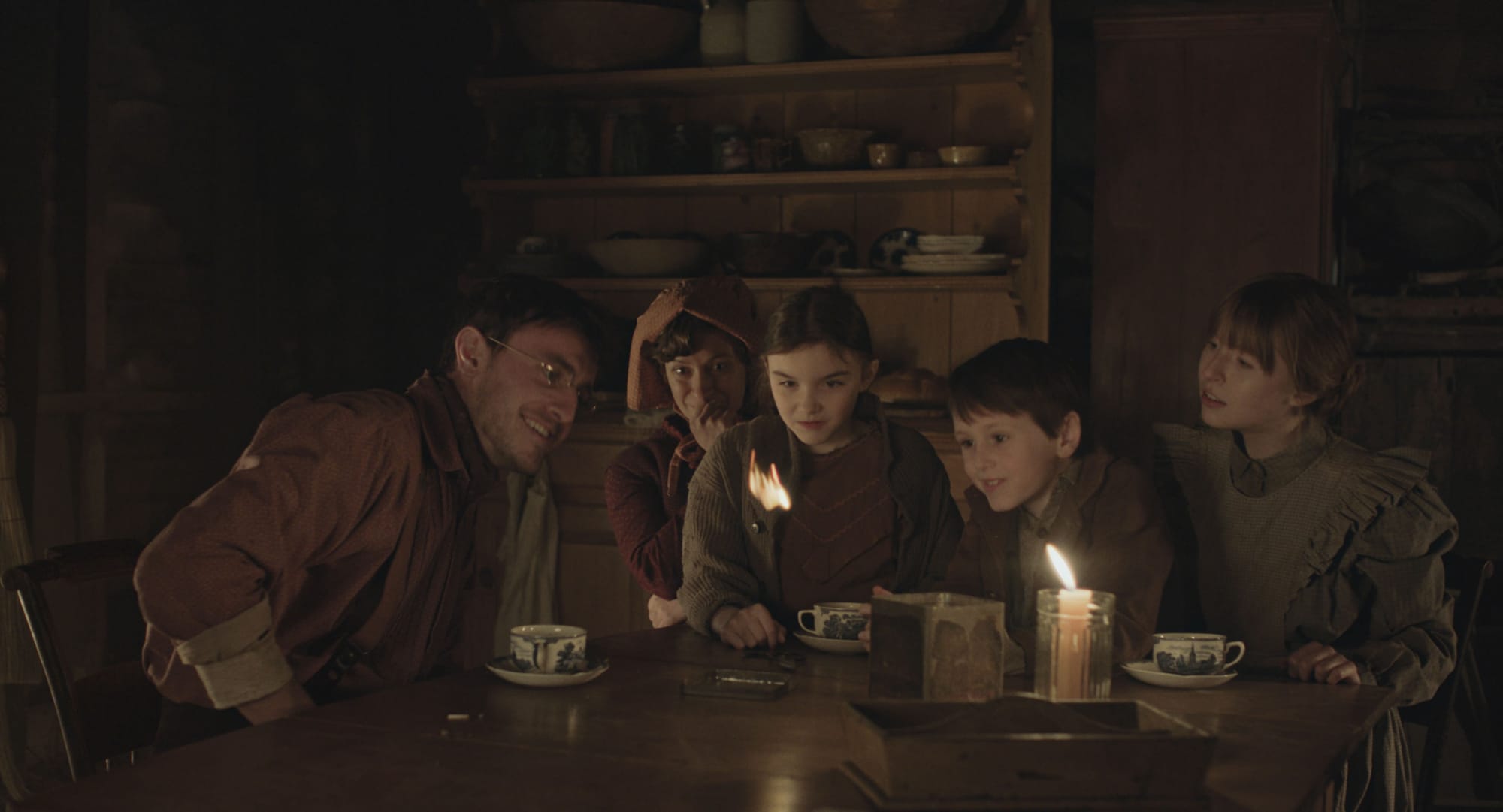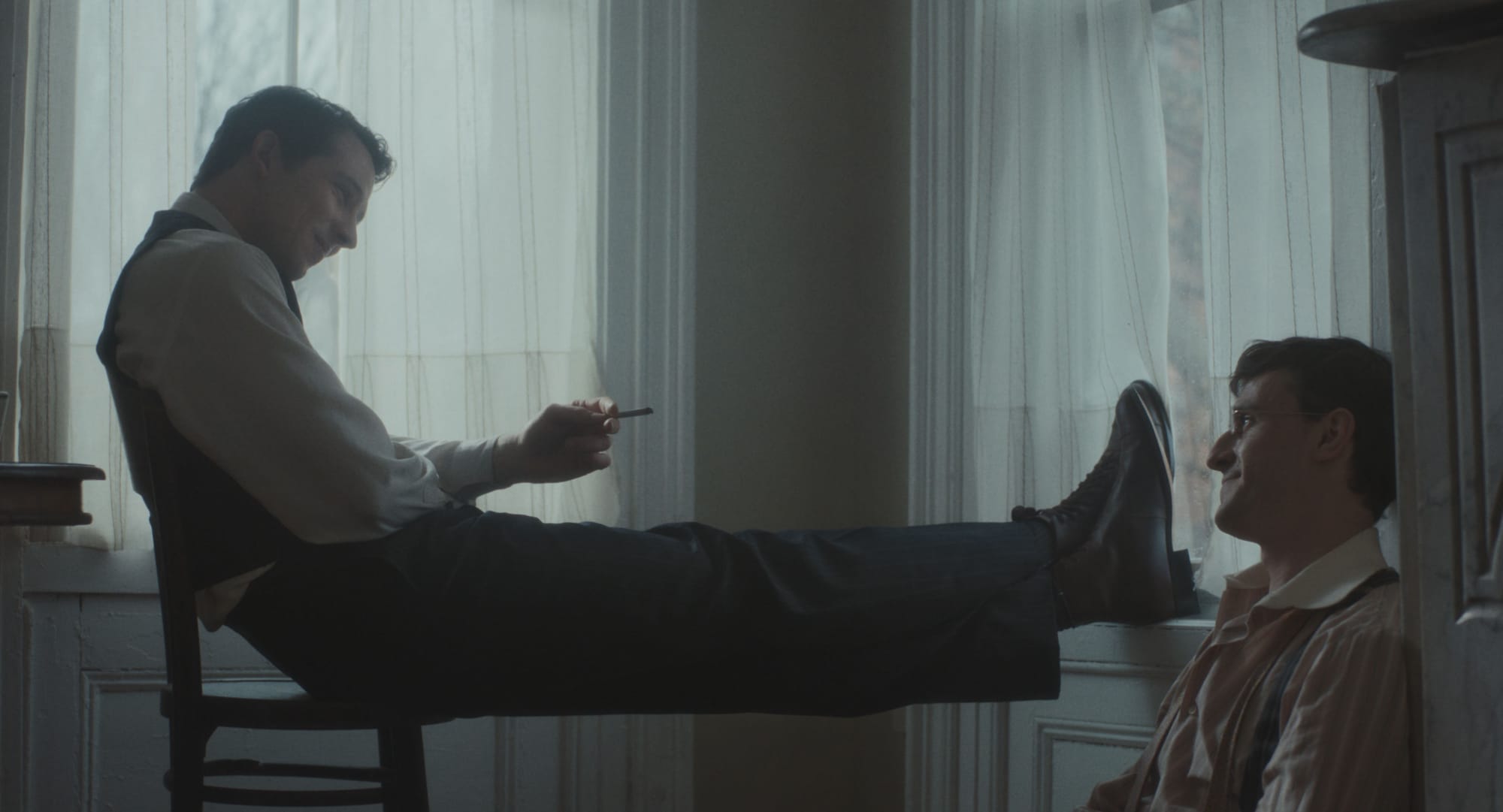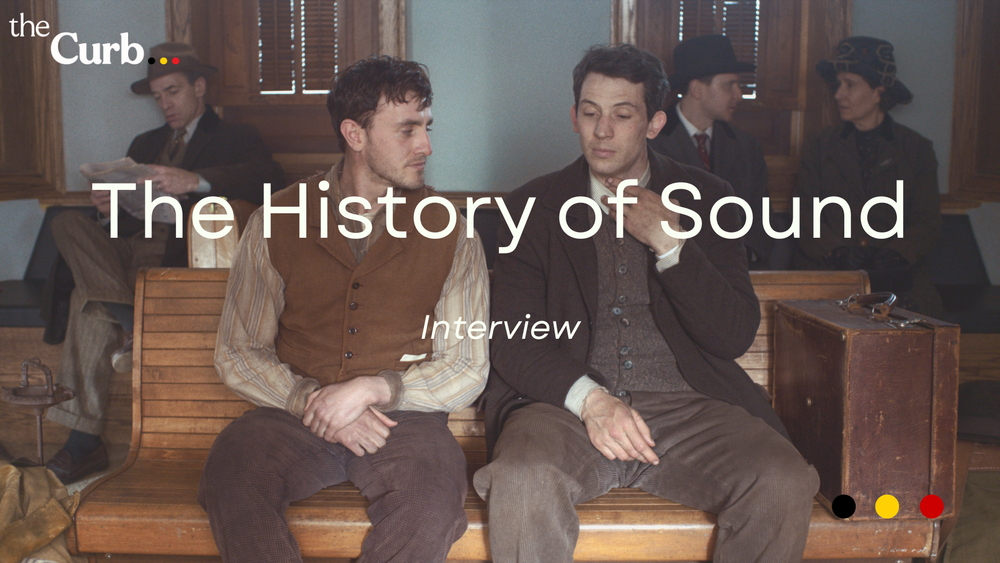Paul Mescal first encountered The History of Sound in an unlikely place: a hotel bed in Australia, fresh out of quarantine, just before Christmas. He had been in the country shooting Benjamin Millepied’s Carmen when the script arrived. Restless and alone, he began to read.
“I remember, I was reading in bed and I was bawling,” he says. “There’s this one eighth-of-a-page scene where the older version of Lionel is eating tinned peaches out of a can. It just destroyed me. I think it’s a perfect screenplay. The fact that this is Ben Shattuck’s first screenplay is nothing short of remarkable. I was like, ‘I want this film to be made tomorrow.’”
The impatience, he laughs, was misplaced. “What I probably learned is that films don’t get made overnight.”
What’s striking about the moment is not just its intensity but its timing. Mescal was still in the first flush of global recognition after Normal People – that sudden, pandemic-era jolt that turned him from an unknown Irish stage actor into a household name. He had gone from Connell Waldron’s shyness to Charlotte Wells’ troubled young father in Aftersun, and was on the cusp of his leap into the multiplex as the tenacious Lucius in Ridley Scott’s Gladiator II. Yet in that Australian hotel room, the film that moved him most was a quiet, period story about two young men wandering through the woods of Maine, collecting folk songs on fragile wax cylinders.
Hermanus’s adaptation follows Mescal’s Lionel, a shy musician living in poverty on a Kentucky farm in the 1910s. His musical talent earns him a place at the New England Conservatory in Boston, where he meets fellow student David White, played by Josh O’Connor. The two embark on a romance and eventually a journey through the forests and islands of Maine, collecting songs and recording them on early wax-cylinder technology, preserving voices that, for the first time in history, could transcend time. The film is quiet, moving and surprisingly small-scale given its emotional scope. In later scenes, Lionel is played by Chris Cooper.



Still images from The History of Sound - photo credit: Neon/Focus Features/Fair Winter
For audiences, Mescal’s move from vengeful gladiator to a gentle, introspective folklorist may seem like a leap. To him, it was a straight line.
“I think it’s the longest I’ve lived with a character,” he says. “I read the script in 2020 and I don’t think I’ve ever walked onto a set and understood a character as well as I did Lionel. There was a lot of excitement and a lot of pressure with that. Gladiator is a totally different physical undertaking – in the last two weeks of shooting I was on a treadmill for three hours a day to lose the frame I’d built. But in terms of where I feel most at home, characters like Lionel are definitely closer to me.”
Mescal has become known for roles that allow him to express vulnerability, Aftersun, Normal People, and Chloé Zhao’s forthcoming Hamnet. The History of Sound may be the most space he has yet been given for that quality.
Over the last five years he has been able to become increasingly selective. His Academy Award nomination for Aftersun changed the practical realities of his career.
“Oscar nominations are great for getting films off the ground,” he says. “But I haven’t really had time to reflect on how it’s changed me as a person. I’m more comfortable knowing myself as a performer, but I’d be wary of an actor claiming they know themselves any better because of success. I find out a lot about myself while I’m playing a character, and then I forget it immediately because you’re trying to figure something else about somebody else’s psychology.”
Central to the film is the music itself, a blend of traditional American folk styles, most now obscure except for songs like “Silver Dagger”. Mescal, O’Connor and Hermanus worked with singer-songwriter Sam Amidon, whose voice blends with theirs throughout the film, alongside performances by a range of folk artists whose songs the characters record on their travels. The act of David recording and Lionel transcribing is, Mescal says, “almost like a romantic exchange.”
One of the film’s quiet radicalities is that Lionel’s queer identity is not a source of shame or conflict. He and David aren’t fleeing society, they’re sharing the job they’ve been tasked with.
“At the start, where Lionel is on the farm, he’s not necessarily aware of a greater world,” Mescal says. “Slowly he realises he’s isolated. There’s a kind of masochistic quality to him in a quiet way, that willingness to accept restriction. Everything changes when he meets David. This is not a repressed film about queer identity. They’re extremely comfortable with each other.”
O’Connor’s David is measured as much in absence as in presence. His departures send Lionel both backwards to Kentucky, spiralling inward and later forwards into the distant future. O’Connor’s scenes were arranged around the press tour for his 2024 film Challengers. Even today, he’s unavailable to talk about the film due to production on Steven Spielberg’s new film, The Dish – which I’ve been assured is not a remake of Rob Sitch’s 2000 film.
“It’s probably kind of fitting, but his schedule with Spielberg was pushed two days forward, unfortunately,” Mescal explains. “I definitely felt his absence when he left the set because I'd known him for five years at that point. On the shoot, we would oscillate between being incredibly fun and playful and there would be deep moments of connection. Like, the wildness of having him spit water into my mouth, which he does in one scene,” Mescal laughs. “Then the next day we’d be running around Boston. I felt very much in my body with him, which was a great thing. Then when he left, I kind of went into my head and I think the character did too, a little bit.”
Fans of Mescal’s work – many of whom know his body as well as his performances – have noticed the film’s lack of graphic sex scenes. Hermanus has said he chose to foreground different forms of intimacy: domestic closeness, shared work, letters, recordings, a shared artistic purpose.
As Mescal put it to People: "I love Josh. We've been in that position before. We know what is required when you're having to do sexual intimacy. We did have an intimacy coordinator, but also we just fundamentally trust [each other]."
In The History of Sound, intimacy is often transmitted simply, through glances, hands, breath. When asked how he occupies that exposed place, Mescal pauses. “There’s a handful – maybe two or three – scenes in each film that are the most vulnerable for me,” he says. “In this film, one involves a bell, and another Lionel speaking to an older couple in England. The first day on set is always exposing. And then some days surprise you.” He says, before leaning forward to illustrate the point.
“One of my favourite days ever on a set was when Lionel was in Kentucky and he’s meeting two friends. It wasn't particularly exposing, but I had been working so closely with Oliver by this point that we realised at the same time, ‘Oh, this is a bigger moment than we had anticipated’.
“There’s a moment when Lionel stops and he can hear David's footsteps and he's walking away. I remember watching Oliver cut that in the edit suite. It was one of my favourite moments of the whole process was watching him do the sound. Lionel is walking away, and he stops… It gives me shivers now just talking about it. Oliver put David's footsteps over Lionel stopping. And then Lionel turns and you see David. God, that was so moving.”
The History of Sound is currently playing as part of the British Film Festival.
Screening or Streaming Availability from JustWatch:

